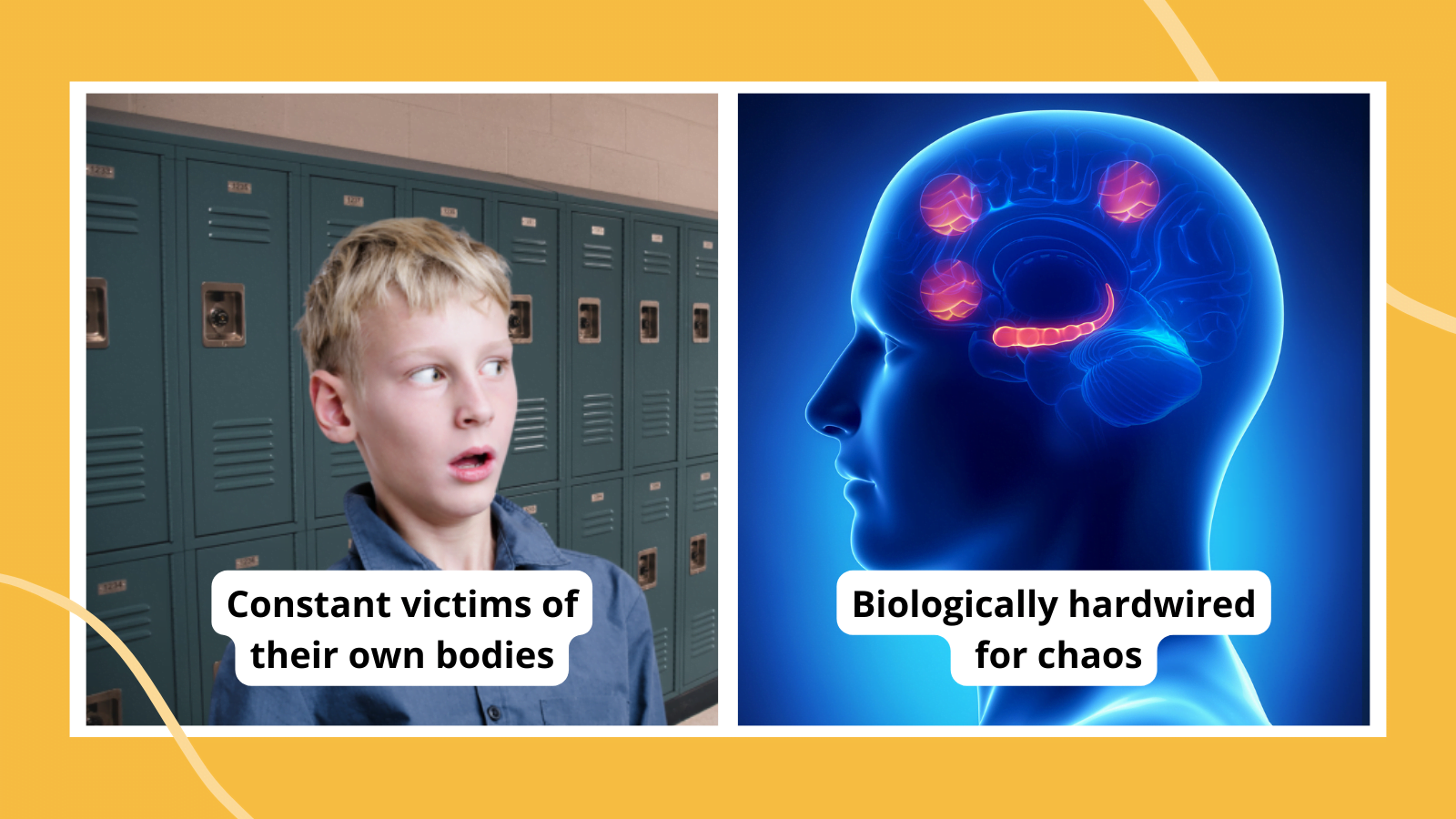

Why Teaching Middle School Is So Hard
Tell people you teach middle school and you’ll get one of two responses:
- You are a saint.
- Ew, why?
Middle school teachers can go on for hours about why it’s the best age group … and it totally is. But it is incredibly difficult, too, for a whole plethora of reasons.
1. The competition for their attention is fierce.
Elementary schoolers love learning. You tell them they’re going to learn fractions or write an essay or whatever it is they do, and they express their joy with hugs and handmade drawings. High schoolers, on the other hand, see the real world rapidly approaching, and eventually realize they should probably get their shizz together before it hits them like an oncoming bullet train.
Yeah, middle schoolers don’t do any of that. Instead, school is an eight-hour-a-day prison that serves no higher purpose, and good luck convincing them otherwise.
2. They are in a constant state of bodily betrayal.
Emotional whiplash. Everything is smelly or hurts. A voice that occasionally jumps into a spontaneous yodel. This level of constant change would have any adult questioning if they’d been cursed, but add in an underdeveloped frontal cortex and every day is a literal disaster. Exponents and thesis statements are the least of their problems.
3. Middle schoolers will do anything to fit in. Anything.
And more and more, “anything” is synonymous with “send nudes.” Seriously, middle school kids will do whatever it takes to feel accepted by their peers, and creating a culture in which it’s OK to be smart and motivated is insanely difficult. It requires an army of teachers and administrators and parents all sending a consistent message, and even then it can be derailed by one popular kid with a bad attitude.
4. They are biologically hardwired for chaos.
Scientists have discovered that the prefrontal cortex, the decision-making part of the brain, doesn’t finish developing until a person’s mid-20s. What scientists are now learning—based on feedback from parents and teachers—is that it disappears altogether from 6th to 8th grade. Poof. Gone. Seriously. Ask a 13-year-old why he launched his chili dog up into the cafeteria rafters and he’ll just stare at you condescendingly, like, Duh, it belongs there.
5. They can be kind of ruthless.
I mean, I love them. But take that steaming hot brew of insecurity, impulsivity, and hormonal imbalance, and you’ll find it’s the rare middle schooler who doesn’t occasionally victimize someone in their life to make themselves feel better. It’s hard to balance high expectations with compassion, especially if you remember just how tough those years can be.
So basically, if you teach middle school, you’re thrown into a cross between Lord of the Flies, One Flew Over the Cuckoo’s Nest, and Good Night, Gorilla (in which all the animals have escaped from their cages but are inexplicably exhausted). Yet rather than focus on basic survival for you and your charges, you’re expected to make them proficient in a variety of multiple-choice-assessable skills while also preventing total emotional meltdown (theirs or yours) on an hourly basis.
Hang in there, middle school teachers. Don’t let the chaos—or the smell—get you down. They’re hearing you, even if it doesn’t seem like they’re listening, and you’ll often find that the things you taught them bear fruit years down the road. Because that’s the part that makes teaching middle school worth it. Eventually, these awkward critters you shepherded through a difficult year will come back and visit you. They’ll be taller, better-groomed, and astoundingly articulate. And probably hungry, so keep a box of granola bars in the file cabinet. And seeing them semi-grown up and functioning like human beings will remind you why it’s all worth it.
Looking for more articles like this? Be sure to subscribe to our newsletters!
Dig Deeper With Our Longreads
Newsletter Sign up to get our best longform features, investigations, and thought-provoking essays, in your inbox every Sunday.
The MEN was founded by John Huber in the fall of 2020. It was founded to provide a platform for expert opinion and commentary on current issues that directly or indirectly affect education. All opinions are valued and accepted providing they are expressed in a professional manner. The Maryland Education Network consists of Blogs, Videos, and other interaction among the K-12 community.











